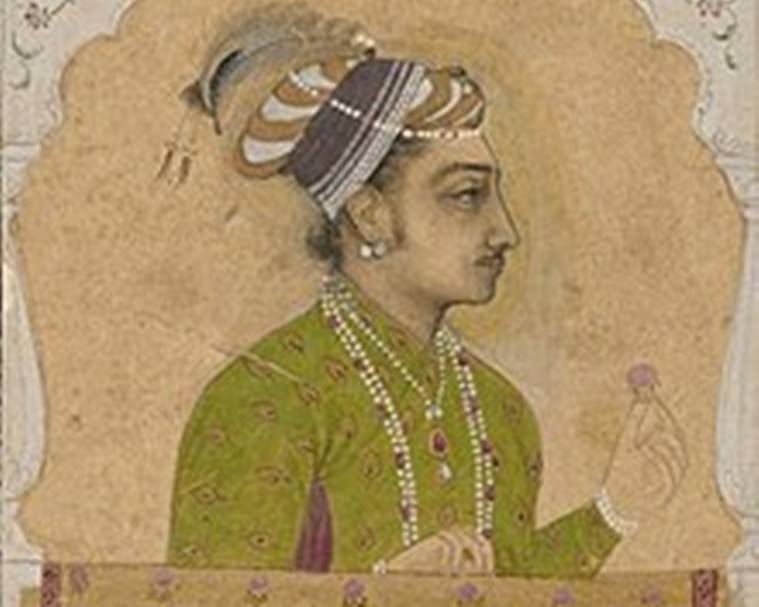Supriya Gandhi: A Mughal prince and the pandits of Benares
Word For Peace
The furore over the appointment of the Sanskrit scholar, Firoze Khan, to a teaching position at the Banaras Hindu University has raged on for over three weeks. It now looks as though the protestors are winning and that Khan may be appointed at the faculty of Ayurveda instead of teaching literature at the Sanskrit Vidya Dharma Vigyan faculty.
The relentless attacks on Khan call to mind a very different era in Benares over three-and-a-half centuries ago. In early 1657, a group of Brahmin pandits travelled from Benares to Delhi so that they could join a Muslim prince in his spiritual quest. Prince Dara Shukoh had been interested in Indic religious thought for a while, but he had recently discovered a group of sacred texts — the Upanishads — that he felt were perfect expressions of God’s oneness. Moreover, he also believed they held the key to understanding the Quran’s secrets. He wanted to work with some Sanskrit scholars to decipher and understand them so that he could produce a Persian translation.
Dara did not have to go far to find help. For several years, he and his father, the emperor Shah Jahan, had played host to Kavindracharya Saraswati, a prominent pandit from Benares. This kind of relationship wasn’t unheard of at the time. Shah Jahan’s court was only continuing a longer Mughal tradition of hosting Hindu religious scholars. Still, there was something special about Kavindracharya’s closeness to the imperial family.
 Miniature Portrait of Dara Shikoh. (Source: The Museum of Fine Arts, Houston)
Miniature Portrait of Dara Shikoh. (Source: The Museum of Fine Arts, Houston)
The court chronicles don’t tell us how exactly the prince drew on the pandit’s knowledge, or what Kavindracharya’s precise role at the court was. This is what we do know, though: Between the years 1651 and 1657, Shah Jahan lavished Kavindracharya with valuable rewards, on more than a dozen occasions.
The pandit composed verse extolling Shah Jahan’s learning. Through his poetry, Kavindracharya also instructed the imperial family in Vedanta and other schools of Indic philosophy. He lauded the emperor’s daughter, Jahanara, and her brother, Murad Bakhsh. And, of course, he praised the emperor’s eldest son Dara Shukoh.
The pandit was held in high esteem by his fellow Brahmin scholars in Benares. So when Dara wished to study the Upanishads, Kavindracharya would have been a natural facilitator. The prince worked for several months with his pandit interlocutors. He named his Upanishad translation Sirr-i akbar or the “Greatest Secret.”
Soon after, Dara was forced to spend the last anguished months of his life as a fugitive from Aurangzeb’s men. Once captured, he reportedly tried to defend himself with all he had left — a knife used for sharpening pens. Two years after he completed the Sirr-i akbar, his pen was silenced forever.
We don’t need to glorify Dara Shukoh to learn from his story. He was a prince hoping to become a powerful sovereign, not a modern-day social reformer or a democratically-elected leader. But the Sirr-i akbar is only one example among many of how the histories of Sanskrit are closely entwined with Persian and Urdu, and the histories of Hindus with those of Muslims.
In fact, the Sirr-i akbar had an afterlife that Dara could never have imagined. We often hear that Europeans first encountered the Upanishads through their Latin translations. But we have forgotten about the numerous Hindus who also read the Sirr-i akbar as a way of accessing their own sacred texts.
Before the age of print, many educated Hindus read Persian — Kayasths, Khatris and Brahmins among them. Persian had a status somewhat like English does today. Just as some Indians now read English translations of the Gita or the Upanishads, many of their counterparts in the past would have read these works in Persian. Dara’s Persian translation opened the Upanishads to non-Brahmins who may not have had the opportunity to develop a mastery of Sanskrit. Take, for instance, the 19th century reformer Kanhaiyalal Alakhdhari. He produced an Urdu translation of the Persian Sirr-i akbar, which enjoyed several printings. Alakhdhari was not very favourably inclined towards Islam or Muslims, but he felt indebted to Dara Shukoh’s Sirr-i akbar, which had helped him access the Upanishads in his own project of Hindu reform and revival.
Dara Shukoh’s Upanishad translation was a monumental project with lasting significance for both Hindus and Muslims. But today it has also become a reminder of religious nationalism’s impossible logic. Certain luminaries of the ruling dispensation hold seminars on Dara Shukoh.
They accuse Indian Muslims of admiring Aurangzeb, and ask them to look up to Dara as a model instead. But when a Muslim scholar like Firoze Khan does just that by pursuing a career in Sanskrit studies, he is hounded. Members of the RSS have spoken in favour of Khan’s original appointment to the Sanskrit Vidya Dharma Vigyan faculty of BHU. Yet, for now, the forces that their ideology unleashed have prevailed.
The future of Sanskrit is linked with the fate of the humanities. It will flourish and grow when the study of all languages and literatures can thrive, in universities that nurture academic freedom and attract a diverse student body. This is a vision too terrifying to behold for the self-styled protectors of tradition.
Like other ideological projects, neo-liberal Hindutva seeks its own coherence. Yet, in it dwell numerous contradictions. At once it promotes Sanskrit as a pan-Indian ideal for all, but then punishes Muslims for advancing too far in it. It seeks the prestige of science and learning while hollowing out stellar public universities.
Such contradictions proceed through a triumphalism that has little space for difference or dissent, let alone our common histories that have Hindus reading Persian, or Muslims studying Sanskrit.
Source: https://indianexpress.com/article/opinion/columns/bhu-sanskrit-teacher-appointment-a-mughal-prince-and-the-pandits-of-benares-6151011/




